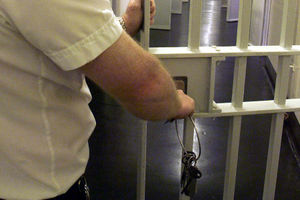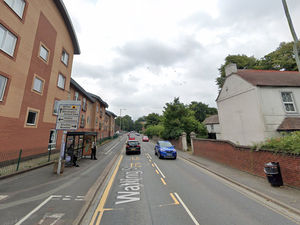Courts chaos: Accused being forced to wait up to 32 hours in cells
Defendants are being held in cells for up to 32 hours while they await appearances before magistrates, it can be revealed.

And security measures are so poor under new arrangements that staff are vulnerable to physical attack.
Solicitors describe the system as a disaster – and today released an open letter with often disturbing evidence.
They describe how defendants are being held for often more than 24 hours, are shipped back and forth between courts in Telford and Kidderminster and often released without any means of getting home.
The letter, sent to the Judicial Business Group, which is responsible for the organisation of courts in our region, describes how custody staff are being placed at risk because of a lack of security measures – but says that concerns that have been raised have fallen on deaf ears.
Shropshire Defence Advocates Group, which represents law firms involved in criminal legal aid cases, said defendants were being held for excessive periods since Telford Magistrates Court stopped hearing custody cases earlier this year.
More Courts Chaos:
Since the changes came into force in April this year, all custody cases in the county are now heard by magistrates in Kidderminster. Previously, they would have been heard at Telford Magistrates Court, which is connected to the police station by an underground tunnel.
The figures, obtained under the Freedom of Information Act, reveal that defendants arrested on warrant at Shrewsbury or Telford Malinsgate police stations are now being kept in custody for an average of just under 15 hours.
The data shows that there were 170 people arrested on warrants between the hours of 7.30am and 2.30pm Monday to Saturday across the two stations over the period from April 3 to August 3.
The quickest time between arrest and a court appearance was 51 minutes, while the longest wait was 32 hours 23 minutes.
A total of 53 defendants – almost a third – had to wait 20 hours or more to appear before magistrates.
Solicitor John McMillan, co-chairman of the group, said the figures represented a 'travesty of justice' for defendants who were not convicted of any crime.
Significant
He said that on one occasion a man was forced to walk 12 miles on an unlit road with no pavement to get back to his home near Minsterley, after being released from court after the bus service had finished.
Mr McMillan said the fact that the delays related to defendants arrested before 2.30pm was particularly significant.
"We were of course aware that even under the old system, if a defendant was charged or arrested on a warrant in the late afternoon or evening, he would have to wait for the court the following morning," said Mr McMillan.
"However, it was those who were arrested or charged who could have been taken over to court when it was sitting next door, except for this policy decision, that concerned us."
He said Telford Magistrates Court still sat daily, fully staffed, with what he described as the largest and safest cell block.
The figures also showed of the 170 arrested on warrants, 68 told officers that they suffered from mental health problems. Mr McMillan said Kidderminster Magistrates Court was not covered by a community mental health team.
Mr McMillan, of Wright & McMillan Bennett solicitors in Telford, also said safety in the cell custody area at Kidderminster was inadequate.
He said there had been two violent incidents since the move.
"In the Telford court, cells are two secure interview rooms, where the solicitor, probation officer or whoever, can be placed in a separate small room adjacent to the holding cell," said Mr McMillan.
"In Kidderminster, no such facility exists. The visitor is locked in the same room as the defendant, and if there is violence it is then up to the cell staff to unlock the room and intervene."
Mr McMillan said one of the interview rooms at Kidderminster had been out of order since a violent outburst on September 19.
"A prisoner ripped the electric clock from the wall, violently kicked the the security window, breaking it, and in a sustained attack kicked the security locked door open and luckily exited into the cell reception area leaving his lawyer extremely shaken but not hurt," he said.
He said that in another incident on October 26 a female youth offending officer was attacked by a defendant who spat in her face.
Mr McMillan said he had asked for a copy of the risk assessment carried out at the time the decision was made to move all custody cases to Kidderminster, but had never received one.
"We draw the conclusion that none was done," he said.





